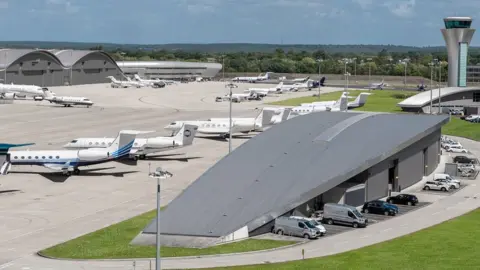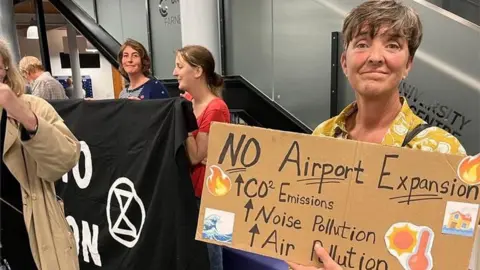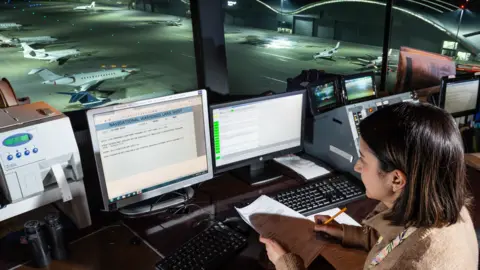Farnborough Airport submits plans for more private jet flights
 Farnborough Airport
Farnborough AirportAn airport has formally applied to increase its flight limit from 50,000 to 70,000 per year.
Farnborough Airport, which mainly serves private jets, said the change would meet demand for business trips.
It said its plans would create 950 jobs in the south east of England and add £220m to the UK economy.
The airport said it had abandoned a plan to extend weekend flying times, following objections from residents.
 Extinction Rebellion
Extinction RebellionThe extra flights by 2040 would include a doubling of the flight cap on weekends and Bank Holidays, from 8,900 to 18,900.
Previously, aviation campaign group Safe Landing said "polluting private jets catering to a handful of wealthy super-emitters" should be curtailed.
East Hampshire District Council said the plans would undermine efforts to reduce carbon emissions and increase noise pollution.
However, the airport's planning application to Rushmoor Borough Council said the economic benefits would be "achieved without significant environmental harm".
 NATS
NATSThe airport said it would introduce "the most generous eligibility criteria of any airport in the UK in relation to grant funding for noise insulation".
It added: "The plans also allow for a continued and renewed focus on emissions reduction and air quality monitoring, with additional monitoring and reporting being proposed, including the measurement of Particulate Matters."
Previously, the airport's chief executive Simon Geere said demand for business aviation was growing at just over 4% per year.
Mr Geere said the airport aimed to achieve net-zero emissions by 2030 and hoped to become the first to use only sustainable aviation fuel (SAF).

Follow BBC South on Facebook, X, or Instagram. Send your story ideas to [email protected].
